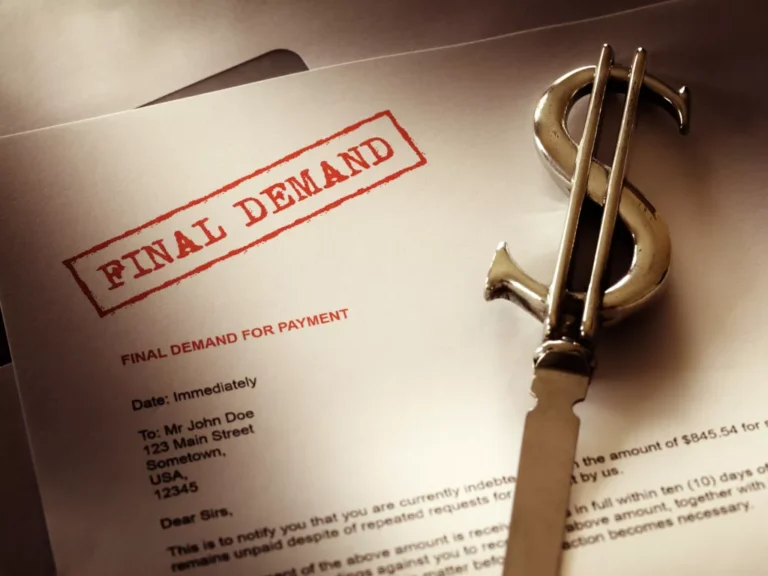On this page
What's next
Earn a high-yield savings rate with JG Wentworth Debt Relief
As if dealing with debt isn’t bad enough, the prospect of wage garnishment can be a source of additional anxiety for anyone struggling with their finances. However, by understanding the laws and protections surrounding wage garnishment, you can navigate your debt challenges with clarity and peace of mind.
What is wage garnishment?
Wage garnishment is a legal process by which a creditor obtains a court order to deduct a portion of a debtor’s wages directly from their paycheck to satisfy an outstanding debt. This is usually implemented as a last resort when other collection efforts have been unsuccessful.
Federal wage garnishment laws
Thankfully, there are laws in place to protect you from excessive or unreasonable wage garnishment. The Consumer Credit Protection Act (CCPA) sets federal limits on the amount of wages that can be garnished: up to 25% of your disposable earnings or the amount by which your weekly earnings exceed 30 times the federal minimum wage, whichever is less.
State laws vary regarding wage garnishment, including the maximum percentage of earnings that can be garnished and additional protections for debtors. For example, some states provide exemptions for certain types of income or limit the types of debts eligible for wage garnishment.
Exemptions and protections
Certain types of income are exempt from wage garnishment under federal and state laws, including:
- Social Security benefits
- Disability payments
- Child support payments
You could also be entitled to additional exemptions based on your financial circumstances, such as minimum income thresholds or hardship considerations. In other words, collectors can’t prevent you from paying your rent or buying groceries.
Notification and due process
Before initiating wage garnishment, creditors are generally required to provide notice and an opportunity for you to challenge the garnishment in court. The amount of time that collectors must give individuals before they start garnishing their wages varies depending on the specific legal requirements and procedures in place in each jurisdiction.
Generally, creditors must first obtain a court judgment against the debtor before initiating wage garnishment. The process typically involves filing a lawsuit, serving the debtor with notice of the lawsuit, and providing an opportunity for the debtor to respond to the legal action. If the court rules in favor of the creditor and issues a judgment, the creditor can then proceed with wage garnishment. However, the specific timeline and notice requirements may vary depending on state and local laws, as well as the rules of the court handling the case.
If the court should rule in favor of the garnishment, you have the right to contest the validity of the debt, assert exemptions, or negotiate alternative repayment arrangements. Which leads us to…
Negotiating with creditors
They want to get paid as much as you want to be free of your debt, so there is often some middle ground that can be reached between both parties. In fact, creditors may be willing to suspend or modify wage garnishment if debtors demonstrate a good-faith effort to address their debts, so it doesn’t hurt to try.
"*" indicates required fields
What about dealing with multiple creditors?
Yes, it is possible for you to have your wages garnished by multiple debt collectors at the same time, although – as we mentioned earlier – there are limitations and protections in place to prevent excessive garnishment that would leave you with insufficient income to cover basic living expenses. Each creditor must obtain a separate court order for wage garnishment, and the total amount garnished cannot exceed the maximum allowable percentage of the debtor’s disposable earnings as specified by federal and state laws.
Feeling overwhelmed and want some help?
If you find yourself in this situation, it’s important to seek advice from qualified professionals, including financial advisors and attorneys, to explore your options and determine the best course of action based on your individual circumstances.
Don’t know where to start? JG Wentworth may be able to help. While we’re primarily known for purchasing structured settlements, annuities, and lottery winnings, we also offer financial solutions for individuals facing debt-related challenges. This may include providing lump-sum payments in exchange for future payments from structured settlements or annuities, which could potentially be used to satisfy outstanding debts, including those subject to wage garnishment.
Additionally, JG Wentworth may offer financial counseling or assistance in negotiating with creditors to help you address your debt issues and explore potential alternatives to wage garnishment. Interested in our Debt Relief Program? Speak with a certified debt specialist today to see how we may be able to help you negotiate with creditors and reclaim your financial freedom.
In conclusion
While debt collectors have the legal authority to pursue wage garnishment under certain circumstances, consumers like yourself are protected by federal and state laws that establish limits on garnishment amounts and provide exemptions and due process rights. By understanding your rights and options, you can take proactive steps to address your debt and mitigate the impact of wage garnishment on your financial well-being.
SOURCES CITED
Faye, B., “The Federal Consumer Credit Protection Act & How it Protects You.” Debt.org. July 13, 2021.
All transactions are done at JG Wentworth’s sole discretion.
This information is provided for educational and informational purposes only. Such information or materials do not constitute and are not intended to provide legal, accounting, or tax advice and should not be relied on in that respect. We suggest that You consult an attorney, accountant, and/or financial advisor to answer any financial or legal questions.







